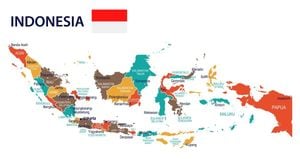The Zimbabwean government has officially begun the long-awaited compensation payments to former commercial farmers whose lands were seized during the country's controversial land reform programme of the early 2000s. Finance Minister Mthuli Ncube announced late Tuesday evening at the weekly cabinet meeting in Harare, stating, "I am pleased to announce the compensation process has begun." This initiative is primarily aimed at restoring Zimbabwe's financial reputation and improving relations with affected countries.
The compensation initiative focuses on 94 former farmers from countries such as Denmark, Germany, the Netherlands, Switzerland, and the former Yugoslavia—nations whose investments were protected under Bilateral Investment Protection Agreements (BIPPAS) prior to the land seizures. The total compensation amount is set at US$146 million, with US$20 million allocated for disbursement this year, and the remainder scheduled over the next four years.
During the announcement, Ncube laid out the government’s intentions, explaining, "We believe this process is fundamental for building trust, honoring our commitments, and ensuring consistency with our Constitution as we address Zimbabwe's debt challenge." The payments commenced as part of Zimbabwe's Arrears Clearance and Debt Resolution Process, which is intertwined with the country's overall reform agenda aimed at clearing its estimated $21 billion debt and reestablishing ties with international creditors.
Zimbabwe's land reform program, launched around 2000, sought to redistribute land from white commercial farmers to landless black Zimbabweans. While the intentions were to amend historical injustices, the implementation resulted in significant economic decline, international sanctions, and widespread food shortages. The government, recognizing the backlash from the dispossession, later promised to compensate the removed farmers for developments made on the land, such as infrastructure, but controversially did not include compensation for the land itself, claiming it was initially expropriated through colonial dispossession.
This initial compensation scheme merely addresses the needs of investors protected under BIPPAS. Previous commitments for broader compensation were made by the Zimbabwean government, but financial limitations have delayed these efforts. Notably, authorities signed a US$3.5 billion agreement with the Commercial Farmers Union in 2020, which remains unfulfilled due to existing financial difficulties.
Critics have voiced concerns surrounding the government's compensation strategy. Independent economist Eddie Mahembe argued, "Why is the government paying for the farms which were allocated to individuals?" Mahembe suggests the resettled farmers should be responsible for the compensation, rather than the government. Additional sentiments have emerged from displaced white Zimbabwean farmers, who are also seeking redress for their losses under the 2000 land reform policy, citing the previous commitment made by the government to compensate them adequately.
Trevor Gifford, the former head of Zimbabwe’s Commercial Farmers Union, expressed his dismay at the government's failure to meet its obligations, saying, "Twenty-five years from the start of land reform, the majority of displaced title deed holders remain destitute due to the nonpayment of compensation." He also raised alarm about the government’s tendency to issue title deeds to resettled farmers without settling existing compensation agreements, which might deter future foreign investment.
Graham Rae, another displaced farmer who has since relocated to Zambia, articulated his frustration at the situation: "You can't steal a car and then sell it to me and think you've washed your hands." Rae firmly believes until he is compensated for his land, he wouldn’t surrender any title deeds associated with it, calling the current land distribution process fraudulent. "This is sad... Zimbabwe has regressed... where there's no rule of law," he lamented.
Despite the mounting criticism, the process of issuing titles continues, enabling resettled farmers to use them as collateral for loans to develop their agricultural businesses. Ncube's government must now navigate the dual challenge of fulfilling compensation promises to both foreign investors and the local farmers displaced by the land reform initiative, each side demanding its fair treatment and resolution.
The commencement of these payments not only signifies progress but also marks Zimbabwe's sincere attempts to engage with its international partners and regain their trust. The situation remains delicate, and the government’s capacity to manage expectations and fulfill its commitments will be tested as it endeavors to stabilize its economy and restore investor confidence.



